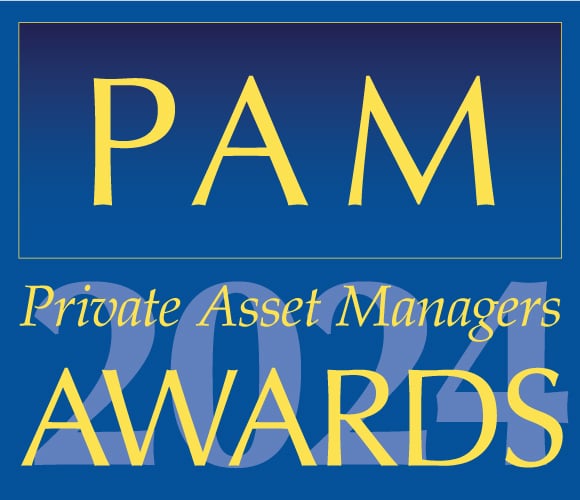Since our last update, coronavirus headlines have taken firm control of global investment markets, pushing all other matters to the side. The pace of events is frenetic, with the spread of the virus, the economic impact, the market reaction and the policy response of governments all overlapping in a short space of time. For now, it is the shorter term policies being taken to limit the spread of the virus that are having the most impact, with the economic effects of social distancing and other measures feeding directly into market volatility.
“For now, it is the shorter term policies being taken to limit the spread of the virus that are having the most impact”
As volatility rises, it automatically prompts those investment strategies which use borrowed money to de-risk quickly, selling anything and everything in order to reduce their exposures. With many longer term investors adopting a ‘wait and see’ attitude, this forced selling is not currently being met with any sizeable buying interest, a feature which fuels illiquid, jumpy price moves which themselves trigger further bouts of selling. This kind of negative feedback loop was in the ascendant last week and was directly behind the relatively rare occurrence when traditionally ‘safe’ investments such as gold or government bonds, fall at the same time as riskier equity markets.
Weeks like this are always disconcerting and unpleasant for investors and managers alike, even at the best of times. Right now, with the health crisis overshadowing daily life it is even more un-nerving, but as this frenetic phase of market adjustment starts to exhaust itself, we will move into a period where technical factors start to fade and fundamental ones reassert themselves. That doesn’t mean we are out of the woods yet, nor that we are through the worst, but it should mean that volatility on the scale just witnessed will begin to subside, allowing a clear-headed assessment of long term risk and reward.
Are we there yet?
Part of the reason that volatility is expected to subside from panic levels is the speed and aggressiveness of the response of central banks. Interest rates have been cut down to close to zero in the US and UK and buying programmes last seen in the crisis of 2008 have been reactivated. The US Federal Reserve has made available $1.5trn in facilities to ensure smooth running of the crucial US bond markets and the ECB has weighed in with €750bn of its own for European markets.
The Bank of England has similarly put up £200bn and all of them stand ready to do more if required. These actions were very much needed as they directly address the negative feedback loops described earlier and, although they will take time to impact, we do think they will be enough in the end to keep the financial system and markets performing the functions they are intended to. If this opinion is correct then we are left with the issue of how to assess the progress of the real economy, with coronavirus now so obviously blowing a hole in growth prospects for 2020. Early estimates are now conclusively pencilling in a recession for the year, with some very ugly numbers in the first half followed by a rapid recovery in the second. This outlook relies on several assumptions, but crucially the most important one – aggressive government spending programmes helping to reflate demand – are now becoming more evident.
Do you need help managing your investments?
Our team can recommend an investment strategy to meet your financial objectives and give you peace of mind that your investments are in good hands. Get in touch to discuss how we can help you.

“The UK is in the forefront of this policy action, with unprecedented intervention by the Treasury to cover wage payments”
The UK is in the forefront of this policy action, with unprecedented intervention by the Treasury to cover wage payments, perhaps the most eye catching of multiple announcements. The European response is also building at the country level (if not at the EU level), with all eyes now turning to the USA to see what will happen there. To us, the most important feature of the central bank and government responses so far is the fact that they have quickly signalled – in a brief two week period – that the gravity of the situation is recognised and requires an unprecedented response. Without these measures a recovery would not be possible – now these are in place, we at least have the basis for assuming one can come.
Another crucial factor for stability is also likely to come into play soon. As selling pressure from leveraged investors, traders and option markets has dominated the last few weeks, the next few weeks should see the reappearance of the hitherto absent fundamental investor. At each calendar quarter end, it is usual for investment portfolios to be rebalanced back to their preferred long term shape, which will have shifted over the previous months. This is a process which involves freeing up cash in positions which have performed well, in order to reinvest the proceeds back into those which have fallen. JP Morgan estimate that the value of these flows could mean up to $800-900bn finding its way back into pummelled stock markets over the coming weeks.
“We are in the process of preparing our own rebalancing for portfolios which will free up cash to invest where the opportunities are most compelling.”
We will only know after the event if this actually happens, but it is fair to say that selling exhaustion is a crucial pre-condition for market stability. A fiscal response from governments is another one. Both are now becoming more visible and they should combine over time to provide a fundamental basis for stability. However, it is also fair to say that until a peak in infection rates is seen in the West, volatility will not subside substantially, although it should hopefully steadily decline from the heights of last week.
What are we doing?
We are in the process of preparing our own rebalancing for portfolios which will free up cash to invest where the opportunities are most compelling. There are several areas where we can see real value appearing and where we would like to increase exposures – convertible bond managers and US inflation protected securities being the best current examples. There are also a few areas where we will be selling some winners – mainly our macro interest rate trading managers who have been on the right side of the recent moves.
Portfolios have taken losses over the last three months and we are working hard to continue to limit those losses and position for a recovery where sensible. Our mindset is to put ourselves three years in the future and look back on what should have been the best investment decisions to take now. As all mandates are performing in line with their risk budgets given the context of wider market falls, this thought experiment really does help us to avoid being whipsawed by events and it has served us well in volatile situations of the past. We aren’t in a particular hurry to do anything dramatic, knowing that it’s unlikely markets will navigate the next few months without drama, but we can see opportunities emerging and a basis for recovery building.
We hope that you find these updates helpful in these unsettling times. We will write a lengthier de-brief with quarterly reporting this month end and would encourage you to continue to talk with your Relationship Manager about any issues or questions you might have.
On behalf of the Saltus Investment Committee, March 2020
Do you need help managing your investments?
Our team can recommend an investment strategy to meet your financial objectives and give you peace of mind that your investments are in good hands. Get in touch to discuss how we can help you.

Article sources
Editorial policy
All authors have considerable industry expertise and specific knowledge on any given topic. All pieces are reviewed by an additional qualified financial specialist to ensure objectivity and accuracy to the best of our ability. All reviewer’s qualifications are from leading industry bodies. Where possible we use primary sources to support our work. These can include white papers, government sources and data, original reports and interviews or articles from other industry experts. We also reference research from other reputable financial planning and investment management firms where appropriate.
The views expressed in this article are those of the Saltus Asset Management team. These typically relate to the core Saltus portfolios. We aim to implement our views across all Saltus strategies, but we must work within each portfolio’s specific objectives and restrictions. This means our views can be implemented more comprehensively in some mandates than others. If your funds are not within a Saltus portfolio and you would like more information, please get in touch with your adviser. Saltus Asset Management is a trading name of Saltus Partners LLP which is authorised and regulated by the Financial Conduct Authority. Information is correct to the best of our understanding as at the date of publication. Nothing within this content is intended as, or can be relied upon, as financial advice. Capital is at risk. You may get back less than you invested. Tax rules may change and the value of tax reliefs depends on your individual circumstances.
Related blog posts
About Saltus?
Find out more about our award-winning wealth management services…
Winner
Top 100 Fund Selectors 2024
Winner
Best Places to Work 2024
Winner
Best Financial Advisers to Work For
Finalist
Investment Performance
£7.5bn+
assets under advice
20
years working with clients
300+
employees
97%
client retention rate






